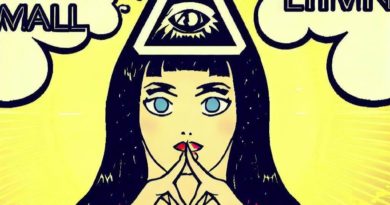Birchers — cabals, conspiracies and the group that paved the way …
When George HW Bush lost a Texas race for the Senate in 1964, one of his undoings was opposition from the highly organised fringe right. Members of the local John Birch Society, as Matthew Dallek writes, labelled the Republican Bush a “One-World tool of the Communist-Wall Street internationalist conspiracy”. Here is an updated version of that oxymoronic mouthful: Bush was part of the globalist plot against America.
The John Birch Society, or Birchers, as Dallek calls them in his impressive new history, slots into a long genealogy of rightwing conspiracy movements that date back to the republic’s founding. Recurring features include a distrust of moneyed elites, of immigrants, cosmopolitans, non-Christians and the descendants of slaves.
From the Shays’ and Whiskey rebellions that rocked George Washington’s presidency in the late 18th century to the Know-Nothings of the 1850s, the Ku Klux Klan of the post-bellum South and the red-baiting McCarthyism of the 1950s, that strain has always been present in America’s DNA. Today, however, in the form of Donald Trump’s Republican party, it is no longer on the fringes. Dallek, a historian at George Washington University, attributes its success mostly to the foundations laid by the Birchers.
You do not have to agree with Dallek’s thesis to find his book worth reading. The John Birch Society was founded in 1958 by Robert Welch, who having retired from his candy-making family business set about saving America from a red takeover. It was named after an American missionary, John Birch, who had been murdered by Chinese communists. Welch had the conspiratorial mindset of all such movement leaders. He thought Dwight Eisenhower, the then Republican president, was a communist agent, attributed the death of the alcoholic Joe McCarthy to foul play, and believed America was run by a cabal at the Council on Foreign Relations.
One of Welch’s most popular conspiracies was about water fluoridation, which he believed was a communist plot to harm America’s health. Another was his campaign to impeach Earl Warren, chief justice of the Supreme Court, for his philo-Soviet rulings from the bench (including the 1954 desegregation of US schools in Brown vs Board of Education). Intellectual consistency was never the Birchers’ hallmark. Their glue was belief in the hidden hand of plots, cabals and conspiracies against America. Birchers reviled John F Kennedy as another avatar of anti-American “one-worldism”. After JFK was killed in 1963, however, they saw the Warren-appointed inquiry as a cover-up for an alleged communist assassination.
As is often the case, Welch combined an almost infinitely childish imagination with a ferocious organising zeal. Bircher chapters were limited to 20 members apiece to ensure secrecy. Meetings were usually held in private homes. In that sense, Welch aped Vladimir Lenin’s Bolshevik methods.
Welch pioneered the political mass mailing list. He cultivated denizens of the business world. One founding member was Fred Koch, owner of a large oil company, whose sons Charles and David were leading benefactors to the Tea Party movement half a century later. Another was a prominent dog-food executive. The National Association of Manufacturers, which remains an influential lobby group today, supplied some of the early Birchers.
Much of the Birchers’ story is instantly recognisable today. Welch urged members to build from the ground up by taking over school boards. One rallying cry was to give parents the right to veto immoral teaching, including sex education. Parents in Florida, whose governor, Ron DeSantis, has passed the “Don’t Say Gay” law that potentially criminalises teachers, would find this familiar. Another goal was to abolish civilian oversight of police forces.
Much like today’s Republican party, establishment figures in the 1960s and 1970s were afraid to confront the Birchers head-on. Barry Goldwater, the losing 1964 Republican presidential candidate, thought there were fine people in the Bircher movement, but distanced himself from its more extreme positions. He was nevertheless the closest they got to a champion. “Extremism in defense of liberty is no vice,” Goldwater said. As Dallek points out, “Birchers won by losing.” Each defeat seeded greater vigour.
Is Trump a Bircher? Dallek thinks the former president owes at least some of his success to their inspiration, which petered out after Welch’s death in 1985. That is arguable. You could more easily trace Trump’s influence to Roy Cohn, the saturnalian lawyer who worked with Senator McCarthy to hunt down alleged communists working for the US government, or to his father Fred, who was thought to have KKK sympathies, or Norman Vincent Peale, the founder of the prosperity gospel, which holds that great wealth reveals God’s favour.
But these are quibbles with a fine book. One recurring Bircher claim was that the US was founded as a republic not a democracy. There are a handful of justices on today’s Supreme Court who are thought to agree with that position. As president, Trump put three of them on the bench. Their work is still unfolding.
Birchers: How the John Birch Society Radicalized the American Right by Matthew Dallek Basic Books, $32/£30, 384 pages
Edward Luce is the FT’s US national editor
Join our online book group on Facebook at FT Books Café
This article has been archived for your research. The original version from Financial Times can be found here.



